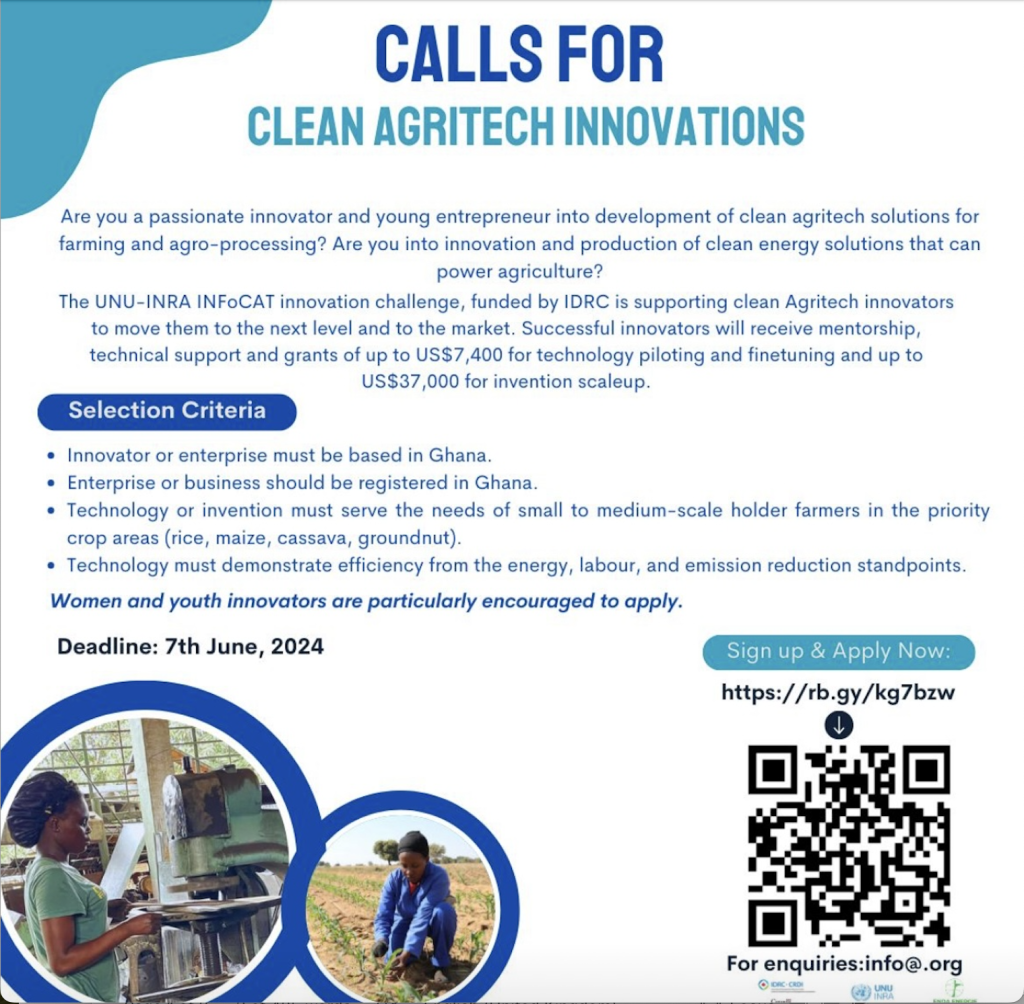Albert Oppong-Ansah, GNA
Accra, May 15, GNA – The United Nations University’s Institute for Natural Resources in Africa, (UNU INRA), plans to launch an initiative to use innovative solutions to support the development of affordable, labour-saving renewable energy agricultural technologies.
The initiative is expected to save time, minimize drudgery, and increase economic prospects for women and youth in agriculture.
The ‘Innovate for Clean Agricultural Technologies’ (INFoCAT) initiative aims to increase economic empowerment for women and youth in rural areas of Ghana, Cote d’Ivoire, and Senegal.
Dr. Ferdinand Toryie, the INFoCAT project coordinator, told Ghana News Agency that a call had been put out for young people and female agricultural technology innovators to apply and present their solutions.
He urged innovators to submit proposals for innovative solutions for rice value chain operations such as irrigation, planting, bird pests, paddy harvesting, threshing, and cleaning.
Dr Toryie said under the groundnut value chain, the initiative was soliciting solutions to activities such as harvesting, plucking pods, sorting groundnut pods and nuts processing.
For the maize, he said that innovations for planting, de-husking and dehulling were welcome.
Dr. Toryie, an INRA researcher, stated that cassava solutions must include peeling, slicing, grating/milling, dehydrating (drying), sieving, and roasting.
He explained that bridging the gender gap in clean technology development and subsequently alleviating poverty, would contribute to a more equitable and sustainable future.
The agricultural sector is important because smallholder farming has been shown to effectively reduce hunger and poverty in rural areas.
Within this sector, smallholder farmers, who account for around 80 per cent of farmland in Sub-Saharan Africa, are not only vital to reducing hunger and poverty among rural communities but also for transitioning to more sustainable agricultural practices.
However, a lack of access to clean energy remains a chronic barrier to smallholder rural agriculture production, post-harvest activities, and agro-processing.
These energy constraints limit the sector’s potential contribution to economic development and meeting sustainable development goals.
Addressing the clean energy and technology requirements of smallholder farmers is crucial for achieving a just transition and unlocking their full potential.
The INFoCAT innovation challenge is funded by the International Development Research Centre (IDRC) partnered by Enda Energie and UNU INRA and its operating unit in Cote D’Ivoire.
The deadline for applications is June 7, 2024, and applicants should register and apply online at https://rb.gy/kg7bzw.

GNA